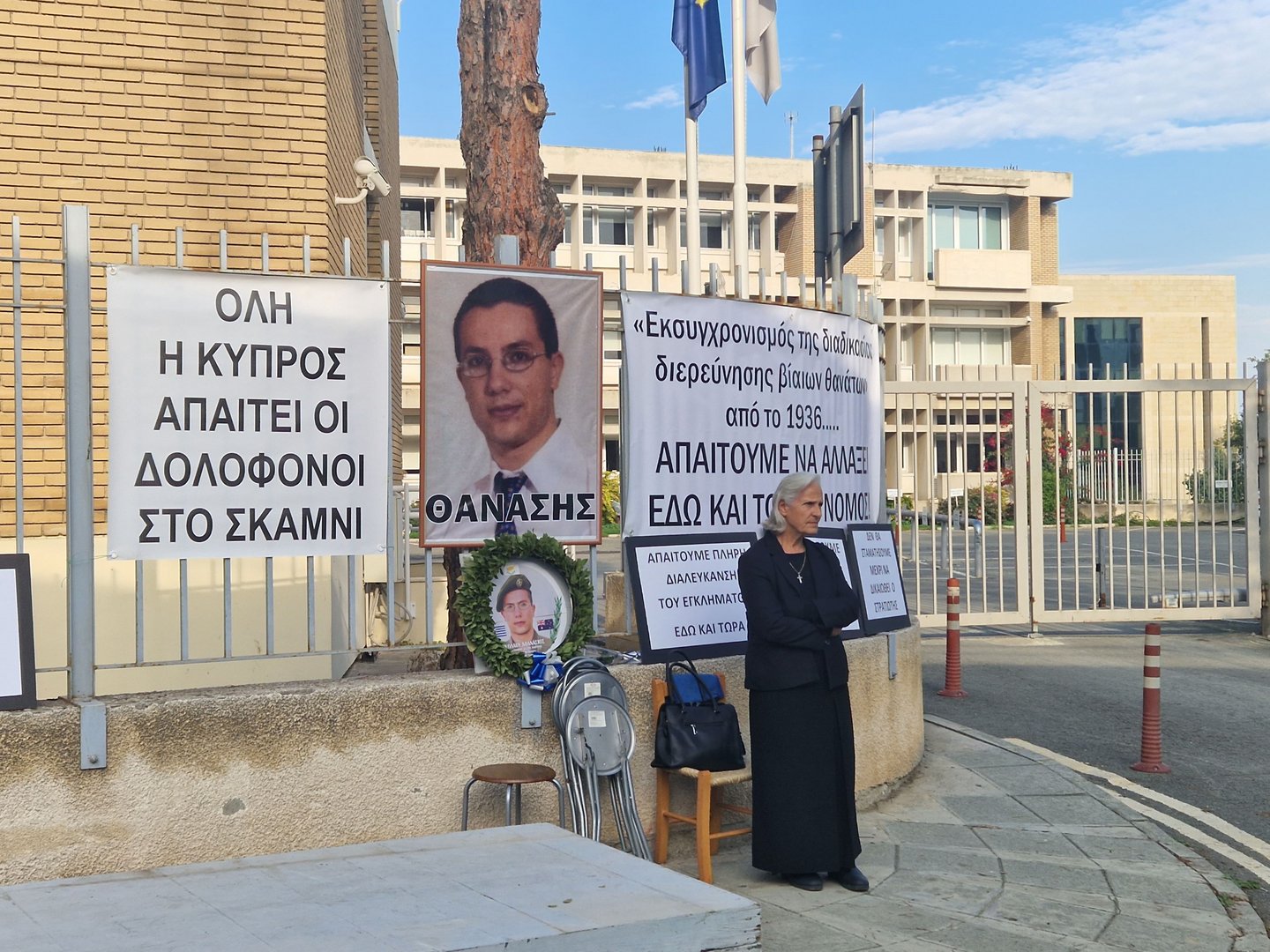The death of Thanasis Nicolaou was a murder, and there is an ongoing conspiracy trying to cover this up by calling it a suicide, Limassol district court heard on Wednesday.
During the highly charged inquiry over the national guardsman’s death in 2005, former investigator on the case Savvas Matsas did not hold back, as he told the court the case is filled with lies, omissions and is evidently a major cover-up.
“The soldiers that gave evidence did so in the presence of their officers,” he said, suggesting they therefore could not have spoken freely.
“Three soldiers believed to be implicated said they were in a café. They were never arrested, or questioned… police did not check for CCTV footage to confirm their statements,” Matsas charged.
“When we sought to obtain phone records, Cyta informed us they get deleted after six months.”
Taking the stand for the second day in a row for over five hours, Matsas testified that the initial suicide ruling by forensic pathologist Panicos Stavrianos “was a lie.”
The injuries Nicolaou had were not consistent with the alleged 30 metre fall to his death from Alassa bridge. Instead, it was evident that Nicolaou was beaten with a bat and murdered by strangulation by around 8:30am, some two hours after he had his breakfast cereal.
This contradicts Stavrianos’ ruling that said Nicolaou died between 2.30pm and 6.30pm.
“Stavrianos decided that was the time of death he should declare. He lied.”
“This effort to cover up [the case] continues to this day. Stavrianos’ report, with its omissions and lies, misled the police, which also failed to properly investigate the case,” Matsas told the court.
Nicolaou’s mother Andriana was in court to follow proceedings, cross-referencing what was said with documents from her file, however the questioning became too much at one point, when she got up and told the court she could not bear to hear anymore.
As relatives tried to soothe her, she turned to the judge and apologised, pulling at her hair and said “I’m so sorry. It’s been 19 years I’ve been hearing this.”
Judge Doria Varoshiotou replied: “your emotions are completely understandable for everyone in this courtroom.”
Matsas was removed as investigator from the case by the attorney-general, who argued it was because he revealed details of his findings to the media, a point he refuted.
“The reason the AG excluded me from this investigation… is because they understood I wouldn’t do whatever they want.
“The [final] report is so poor, and so biased, it proves only one thing. There is an agreement to cover up this case.”
As the cross-examination continued, the judge crossed words with state prosecutor Xenia Xenophontos multiple times, saying “this is the third such inquiry on this case, and we are in 2024” and still trying to get to the bottom of this.
“The stance of the attorney general has been obvious throughout the entire process,” the judge said, eliciting a round of applause from the courtroom.
Though the judge had greenlighted a request by Nicolaou’s family allowing Andriana to take the stand, lawyers said she would not do so after they saw how the state prosecutor treated people speaking before the court.
Xenophontos refuted the allegation.
Matsas reiterated that Nicolaou was extensively bullied in the army, that he was forced by other soldiers in the unit to “make a confession of love to a lamp” while they mocked his Australian accent.
He was 26 at the time, “an educated man,” while the rest were 18-year-olds.
Matsas underlined that when Nicolaou pointed out there was a strong smell of cannabis, the other guardsmen told him “shut up you gay Australian.”
Nicolaou’s family has argued his knowledge of alleged drug-use in the unit is linked to his death. Matsas pointed out to the court that the army did not take proper note of who walked in and out of the base.
A second report by forensic pathologist Sofoklis Sofokleous which backed up Stavrianos’ findings were part of the cover-up, Matsas alleged as “the two have been colleagues for years.
“I got an ulcer with everything I saw in this case.
“All these omissions and lies point to one thing. Why do people lie? To cover up the truth. There is no other explanation.”







Click here to change your cookie preferences